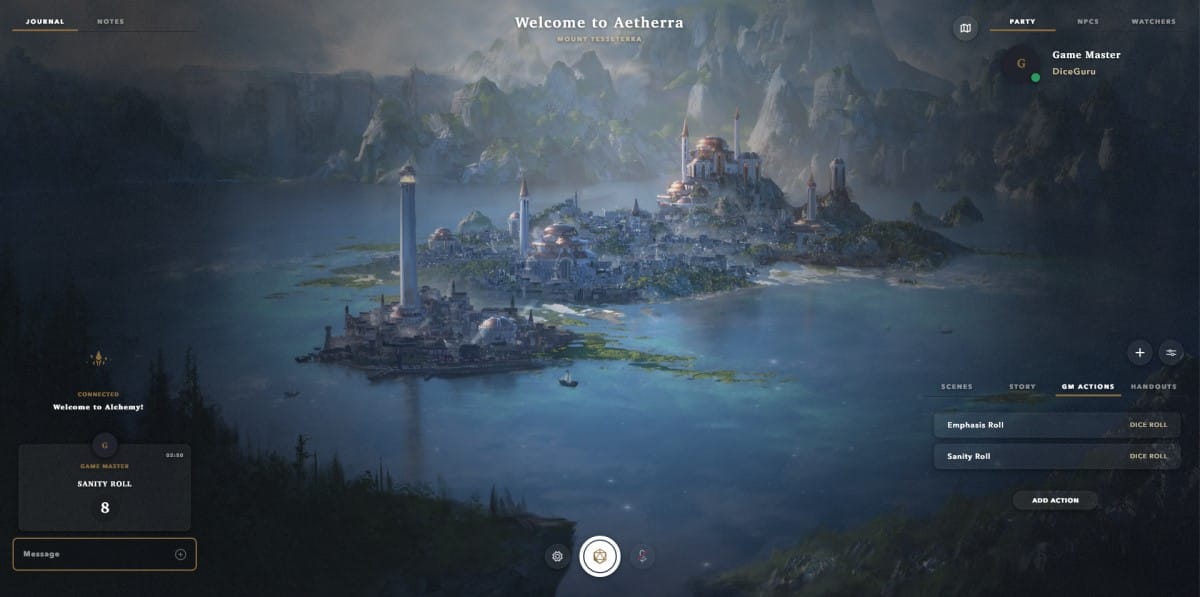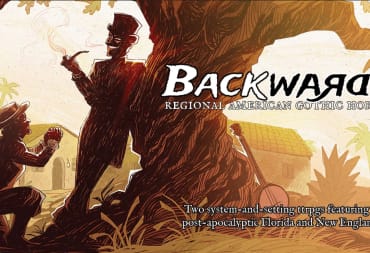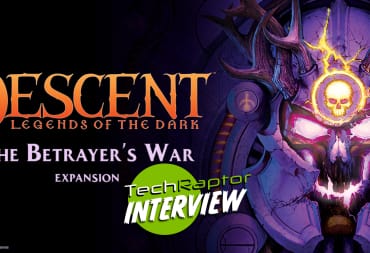If you enjoy tabletop RPGs, there's a good chance that you play online. To that end, there is an entire side of the industry dedicated to the development of virtual tabletop (VTT) platforms. Each of them have their own unique selling points as well as their own marketplace of supported assets and features.But most of these VTTs revolve around simulating tactical “Map and Mini” style play which utilizes complex systems to account for lighting, visibility, shortcuts for calculating distance, damage, etc.. While this model has been present in many popular VTTs, the recent success of Alchemy RPG highlights another model of play: theater of the mind. And with Its initial funding goal of $10,000 being exceeded more than twenty times over on the first day of its Kickstarter, it is clear this style of play has an audience. In fact, with over $600,000 raised courtesy of over 3,800 backers near its end, it has a very large audience.
That is a truly impressive amount of money and support for a new VTT. But it also raises some questions about the talent behind the project, the challenges they face, and how this project ultimately came to be. Thankfully, we at TechRaptor managed to sit down with CEO of Alchemy RPG, Chris Eddie, and discuss these very challenges.

According to Eddie, he and his co-founder, Isaac Overacker, were a natural fit as collaborators. They were part of a band together while in school, which helped them build various interpersonal skills as well as some level of brand management. By the time they had entered the workforce, Eddie had gone into software design, his professional credits include working on Amazon Cloud Player, Google, and Netflix. and Overacker went into software development. These skills and experience helped the two when it came to independent software app development.
As for how the idea for Alchemy RPG came to be, Eddie admits it came from a level of dissatisfaction with the current options of VTTs. Eddie talked about a time in 2018 where he and his friends were playing D&D online through Discord and a VTT. But the VTT didn't really support how they played the game. The group wanted to integrate music and sound effects, leaning into the game as an atmospheric experience. Then, in the rare moments when combat would start, they would enter the VTT to use the combat grid and tokens.
This style of play was where foundation of Alchemy RPG began. The focus would be a multisensory experience with motion graphics, music, one where the storytelling would be center stage. However, if and when combat would happen, a tactical mode could easily be pulled up and utilized.
“I think the way that we saw it, a platform like Roll20 or Fantasy Grounds or Foundry was really all about tactical; all about combat. The way we started looking at roleplaying games, especially as we started playing games that were not D&D, is that there are these three main modalities: exploration, roleplay, and combat. You need to be able to seemlessly move from modality to modality as your story changes. That was the lightbulb for us. We're not making a theater of the mind platorm, we were making a more well-rounded roleplaying platform where you can experience all three of these aspects of the game.”
Eddie's remarks do hold a lot of weight. According to a Q4 2021 user data report for Roll20, out of the millions of users and countless games happening on that platform, 55% of games were for D&D Fifth Edition. The closest competitors were Chaosium's Call of Cthulhu at 9.23%, Paizo's Pathfinder 1e (3.33%) and 2e (1.41%) and Cubicle 7's multiple licensed Warhammer TTRPGs at 0.89%. Most of these TTRPGs dedicate a large amount of their rules and content around tactical combat and maps. The more scene-based, abstract TTRPGs like Vampire: The Masquerade, Blades in the Dark, FATE, or Powered By The Apocalypse are just drops in the bucket by comparison. In this context, Roll20, one of the most popular VTTs on the market, has a lot of incentive to maintain this focus on maps and tactical play due to this vastly disproportionate marketshare. That leaves a considerable gap in the market for platforms supporting more narrative-focused systems and toolsets.
I commented on this situation to Eddie. Lamenting my personal experiences of running theater of the mind campaigns within these VTTs. While it is entirely possible to run narrative-driven campaigns within these platforms, the process for doing so always feels clunky and a little arcane. By comparison, the current version of Alchemy RPG has a much cleaner and more direct user experience. Within minutes, I was able to set up handouts, adjust music levels, and flip through different scene backgrounds. I was ready for any tonal shift or unexpected twist by players at my table, and it felt amazing.
Of course, if the user experience is easy and accessible, that doesn't mean that it was easy to put together. Developing a VTT platform that fully supports a TTRPG system is a lot of work. That work compounds if you want to support more than one TTRPG.
“The base game of D&D has a thousand pages of core rules […] but also no rules at all. You need to be able to fudge anything. That's really difficult when you're building software. As you know, software is just ones and zeroes. It got us thinking about automation. Thinking about computation. Understanding that we wanted to build a storytelling tool, not something that automates the game or computes the game. You'd think that so many people come to their VTTs expecting that but not actually wanting that.”
This isn't just vague conjecture either. Eddie and his team have remained consistently transparent with update videos on the official Alchemy YouTube channel, providing updates on quality of life features and discussing how crucial iteration and user feedback has been on polish. Alchemy RPG has been in an open beta state for a year, and it only has become what it is through a lot of, as Eddie put it, “eating their own dog food.” In many ways, development was almost constant uphill battle, one which became very humbling for all involved when that work came under the scrutiny of over ten thousand users.
As our conversation continued, Eddie did mention that this shift to more accessible user experiences may stem from how mainstream the TTRPG hobby has become. Many older TTRPGs were very technical, which meant that a sizable chunk of the community were very technically inclined. That kind of mentality is very helpful when it comes to parsing denser, more obtuse interfaces. Now, with the new wave of players, there's a greater demand for a more approachable set of tools. In fact, some of those approachable tools are becoming gamified like the Kickstarter project Fablecraft.
But, if the number of TTRPG systems being supported by Alchemy RPG is anything to go by, a lot of that effort has paid off. Many different eclectic TTRPGs and systems will be directly supported on the platform, including most of Free League Publishing's catalog (Dragonbane, Coriolis, Mutant Year Zero) Paradox Interactive's World of Darkness franchise, as well as the various works of Kobold Press, Monte Cook Games, and Modiphius. Eddie even mentioned support for a “systemless” format where you can implement your own TTRPG systems if it isn't directly supported.

But the system is just one part of the Alchemy RPG experience. If you run a game using Enhanced, the GM will have access to a number of musical tracks that can be played to set the appropriate tone. Furthermore, the GM can adjust the volume or even change the tone of the track with the press of a button.
While Eddie does mention that this system will not be as full featured as Syrinscape, Alchemy RPG's approach will be more immediate. While Syrinscape does grant the user an impressive amount of flexibility when it comes to music tracks, it requires an entire screen of tabs and switches to adjust. Unless you have full mastery of that system, adjusting it during a game can lead to a lot of dead air. Much like delivering the punchline of a joke, if you take too long with the set up the pay off will fall flat.
“We want to remove the speedbumps in the storytelling process so the Game Master can focus on the story. We are working on some really cool innovations with audio that make it to where you can quickly and easily send the vibe of your story in a direction by basically throwing one switch.”
Curiously, creating a soundscape isn't the only area where Alchemy RPG wants to lower the barrier to entry. There are millions of hours of TTRPG players livestreaming and broadcasting their campaigns on Twitch. There are hundreds of Actual Play podcasts online. But the actual work of setting up an actual play requires multiple programs, different hardware, and a lot of coordination. But Alchemy RPG will support livebroadcasts, recording your sessions for archival and reference, and even a spectator mode where listeners can comment on the game as it progresses.
Finally, there is the concern of hardware. Even for browser-based software, there is always the concern of hardware limitation since certain programs due utilize GPU to an extent. Eddie has mentioned that Alchemy as it currently stands is facing challenges in this regard. There are currently no options to downgrade the experience on hardware that may not have a dedicated GPU like a Google Chromebook. But, it is a challenge his team is facing head on; even joking that he'd love to see the platform supported on a smart fridge in the future.
Throughout my entire conversation with Eddie, I was continuously reminded of his humble expectations for Alchemy RPG.
“I think it's very important to distinguish that we don't want to kill the competition in the virtual tabletop space; we want to create variety in the virtual tabletop space.”
Given just how much love and support the platform has gotten already, it is clear that this underserved part of the community has found a place to call their own. Version One of Alchemy RPG is scheduled to go live in September 2023.
Have a tip, or want to point out something we missed? Leave a Comment or e-mail us at tips@techraptor.net












